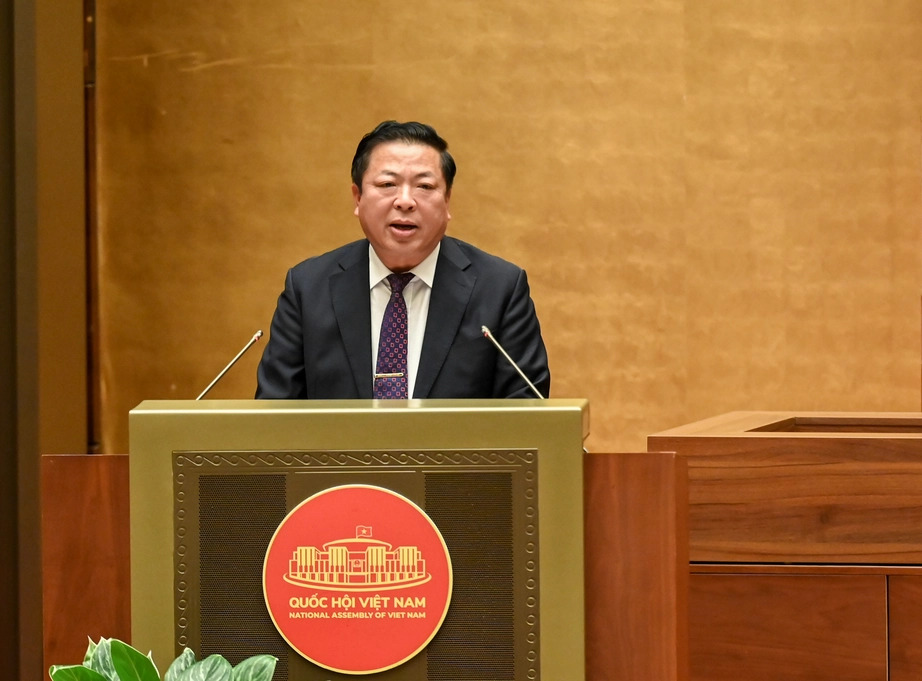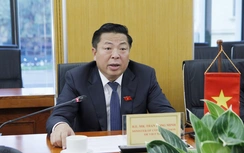Presenting the proposal ahead of the vote, Minister of Construction Tran Hong Minh emphasized that the Resolution represents a breakthrough in addressing housing shortages—particularly for low-income earners—while simplifying administrative procedures to attract private investment.

Minister Tran Hong Minh presents a report on the draft social housing Resolution to the National Assembly.
A central highlight of the Resolution is the establishment of the National Housing Fund, a non-profit financial entity operating outside the state budget. The fund will consist of a centrally managed component set up by the Government and local funds established by provincial-level People’s Committees. Its primary goal is to expand the supply of rental housing and ensure long-term housing stability for those unable to purchase homes.
The fund model enables multiple tenants to use a common housing stock over time, preserving land resources and providing a more flexible solution than traditional homeownership schemes. Currently, rental units in many private projects are eventually sold, reducing housing availability for renters. The new model seeks to reverse that trend.
In terms of policy beneficiaries, the Resolution expands eligibility to include workers, civil servants, and employees of enterprises, state agencies, and socio-political organizations. Local authorities will be empowered to determine eligibility based on regional characteristics, relocation timing, and infrastructure access, ensuring that social housing is conveniently located near workplaces.
The Resolution also supports individuals affected by administrative unit restructuring, allowing them to access housing support under new criteria.
To attract private investors and reduce bottlenecks, the Resolution introduces sweeping reforms to streamline project implementation. Key measures include:
- Eliminating investor bidding and investment policy approvals under the Investment Law, reducing processing time by approximately 200 days (70%).
- Waiving detailed planning requirements, saving 65 days.
- Removing feasibility study appraisals by construction agencies, saving 15–35 days.
- Allowing direct contractor selection, eliminating open bidding, and cutting 45–105 days.
- Exempting construction permits for standardized housing designs, saving 20–30 days.
Removing provincial price approvals for social housing units. Instead, developers will self-determine and finalize sale or lease-purchase prices, subject to post-handover audits and inspections—saving at least 30 days.
These reforms shift oversight from pre-approval control to post-implementation supervision, improving both speed and accountability.
In parallel, the Government is tasked with issuing detailed guidelines to prevent misuse, corruption, and policy loopholes, and to ensure quality control across social housing projects.
“This Resolution marks a bold step forward in Vietnam’s efforts to meet the housing needs of low-income groups while fostering a healthier investment environment”, Minister Tran Hong Minh stated.





Bình luận bài viết (0)
Gửi bình luận